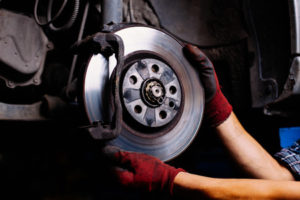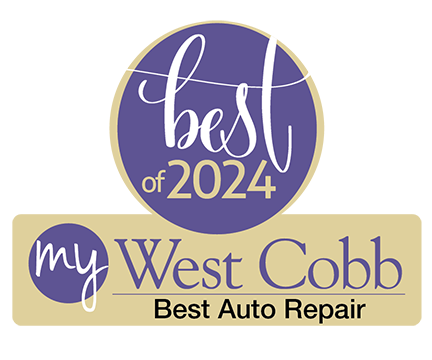You rely on your brakes each day. Despite this fact, most people rarely think about their brakes until there’s a problem. Unfortunately, a problem with your brakes can have major consequences. Car brake replacement is a serious subject.
Signs that Car Brakes Need Replacement
 Knowing when your brakes need to be replaced is a great way to avoid problems. The only thing is, you might not know or recognize the early signs. If your brakes become too warn, they might do enough damage to make it a costly repair and maybe even require professional servicing.
Knowing when your brakes need to be replaced is a great way to avoid problems. The only thing is, you might not know or recognize the early signs. If your brakes become too warn, they might do enough damage to make it a costly repair and maybe even require professional servicing.
Watch for these classic signs indicating your brakes need to be replaced:
- Squealing: If your brakes make a high-pitch squeal each time you press on the pedal, that’s usually a sign the pads are too far worn. The sound is made by a metal shim or indicator that’s designed to get your attention. Sometimes, though, if your car has been sitting where it’s exposed to water, the brake discs develop a thin layer of rust. This generates a squealing sound, but it is temporary and won’t keep up for long.
- Grinding: When you hear a grinding sound as you step on the brake pedal, not a squeal, that almost definitely means your brake pads are worn to nothing. As the caliper, which holds the pads, scrapes against the discs, the metallic grinding is produced. If you don’t address this problem right away, irreparable damage to the rotors is imminent.
- Vibration or Fluttering: As you push on the brake pedal, you might feel a vibration or slight flutter. During hard braking situations, like if a car pulls in front of you, this could be the ABS system pumping the brakes for you. This is different, because you feel it all the time, even when casually slowing to stop. Over time it grows. Usually, this is an indication the discs are warped, usually from riding the brakes as you go down steep hills repeatedly. Sometimes the rotors can be resurfaced and saved, otherwise they must be replaced.
- Pulling: As you brake, you might notice the car consistently pulls left of right. This is a sign the pads have worn unevenly, or that something foreign got into the brake fluid. Obviously, not only can this be annoying, it’s dangerous.
- Diminished Power: If you notice your brakes don’t stop as well as before, or that the brake pedal just sinks to the floor of your car, that one of the signs of old car brakes. This problem usually means you have a bigger problem than worn brake pads. Likely, it’s a sign that the brake lines are leaking, or at least that you need to top off the brake fluid reservoir. If you also notice an oil-like substance pooled wherever you park the car, a leak is likely.
If you notice one or more of these issues when you step on the brakes, car brake replacement may be necessary. At the very least, you may want to consider a visit to your mechanic to make sure there isn’t another underlying problem.
DIY Brake Replacement
If you’re mechanically inclined, you can swap out brake pads with relative ease. Car brake replacement requires some specialized tools and supplies before beginning. If you don’t have these supplies on hand, many tool rental shops have them.
 New Brake Pads
New Brake Pads- Brake Fluid
- Gloves
- Jack
- Jack Stands
- Lug Wrench
- Wrench
- C-Clamp
- Wire Brush
- Penetrating Grease
First, you want to loosen the lug nuts before raising each wheel and supporting that corner of the car with the jack stands. Loosen the bolt on one end that hold the caliper in place, then pivot the caliper to access the brake pad, which you pull out.
If you’re having trouble loosening the bolts, use the wire brush to remove surface rust, or apply penetrating grease to the threads, being careful to not spray the brake disc. Compress the pistons on the calipers with the C-clamp so they’ll clear the new, thicker brake pad. Insert the new pads into the calipers, then reassemble everything by reversing the order you followed to take it all apart.
Car Brake Replacement at T3 Atlanta
Not everyone is comfortable with servicing their own brakes, or you might not have the time. As always, T3 Atlanta is here to help. Our technicians have the training and expertise to ensure your brakes are properly cared for, so when you need them most they’ll operate properly.










Leave a Reply
You must be logged in to post a comment.